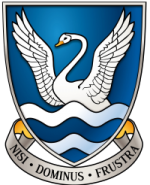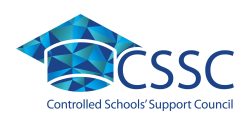 Physical Education
Physical Education
Aims
- To encourage pupils to be active.
- To allow pupils to develop an understanding of how their bodies work.
- To develop a range of physical skills.
- To give pupils the understanding of the importance of health and fitness.
- To encourage pupils to be active for life.
- To develop a range of communication skills.
- To encourage pupils to appreciate the benefits of working with others in teams.
- To provide pupils with opportunities to evaluate their own work and the work of others.
Staffing
Mrs Heasley (Head of Department)
Mrs Chambers
Ms Jackson
Miss Lough
Mrs Moore
Key Stage 3
Pupils are able to take part in a range of activities including:
Athletics:
Pupils are enabled to:
- participate in activities and physical challenges to learn, understand and continue to develop the core skills of running, jumping and throwing in a co-operative and competitive context using a variety of equipment;
- progress from simple running, jumping and throwing activities towards becoming involved in more difficult personal challenges and through them, improving performance
- practise running over short and long distances
- practise jumping for height and distance
- practise throwing activities for accuracy and distance from a stationary position to a controlled run-up
- record and analyse personal performance in a variety of ways.
Dance:
Pupils are enabled to:
- progress from using simple movements and gestures, towards developing these into a structured, sequenced and co-ordinated set of movements using variables such as space, direction and speed
- develop their movements progressively individually, in pairs, in trios, small groups, and larger groups
- develop more effective use of space levels, directions, speed and strength
- move with increased control, co-ordination and poise, using a variety of actions and gestures which communicate ideas and feelings
- create, practise and perform movement sequences, using a variety of stimuli and to an audience
- structure dances with clear beginnings, middles and ends;
- perform a selection of simple folk dances
Games:
- Pupils are enabled to:
- progress from developing individual skills and partner activities and games to suitable small-sided, adapted and mini-games through both co-operative and then competitive play
- develop control in running, jumping, changing speed, stopping and starting, with and without small equipment
- improve their skills of handling, hitting and kicking using a variety of equipment and progress from developing individual skills and partner activities and games to suitable small-sided adapted and mini games through both co-operative and then competitive play
- develop an understanding of, and participate in, small-sided, adapted and mini games
Gymnastics:
Pupils are enabled to:
- extend their body management skills and improve the variety and quality of movement;
- progress from working individually to working in pairs, trios, small groups and whole groups
- explore practise and refine a range of movement skills, including travelling, flight, rolling, balancing, transferring weight, including weight on hands, twisting, turning and stretching
Swimming:
Pupils are enabled to:
- develop basic swimming and personal survival skills
- understand the importance of personal hygiene in relation to pool use
- progress from using a swimming aid to developing their confidence and competence in being able to swim without the use of any aids using recognised swimming strokes
All pupils in years 8 to 10 participate in 2 x1 hour classes each week.
Key Stage 4
The pupils who have selected GCSE Physical Education will have the chance to gain an insight into the wider world of PE and sport.
We follow the CCEA Physical Education specification.
The specification has three units:
- Component 1: Factors Underpinning Health and Performance
- Component 2: Developing Performance
- Component 3: Individual Performances in Physical Activities and Sports.
http://www.rewardinglearning.org.uk/microsites/physical_education/
Key Stage 5
Pupils who have chosen to study A-Level PE will be able to develop an appreciation of physical education in a wide range of contexts. It is designed to integrate theory and practice with an emphasis on the application of theoretical knowledge. Learners will develop an understanding of how the various theoretical concepts impact on their own performance, through the integration of theory and practice. Learners will also have the opportunity to develop an awareness of contemporary issues relevant to physical education and sport
We follow the WJEC Physical Education specification
AS LEVEL
Unit 1: Exploring Physical Education
This Unit is assessed through a written examination and contributes 24% of the total A-Level qualification. The paper includes a range of questions, including multiple choice, data response, short and extended answers. The subject content includes modules in Exercise Physiology, Performance Analysis and Training, Sports Psychology, Skill Acquisition and Sport and Society.
Unit 2: Improving Personal Performance in Physical Education
This is a non-exam assessment Unit which contributes 16% of the total A-Level qualification. Pupils are assessed on their practical performance as a player/performer and as a coach or official in one activity/sport. They are also required to carry out a Personal Performance Profile in the chosen practical activity which will help them improve their personal performance as a performer, coach or official.
A2 LEVEL
Unit 3: Evaluating Physical Education
This Unit is assessed through a written examination and contributes 36% of the total A-Level qualification. The paper includes a range of questions, including data response, short and extended answers. The subject content includes modules in Exercise Physiology, Biomechanics, Sports Psychology, Skill Acquisition and Sport and Society.
Unit 4: Refining Personal Performance in Physical Education
This is a non-exam assessment Unit which contributes 24% of the total A-Level qualification. Pupils are assessed in their practical performance of a performer, coach or official in one activity/sport. They are also required to carry out an Investigative Research which will help them improve their personal performance as a performer, coach or official.
http://www.wjec.co.uk/qualifications/physical-education/
Career Opportunities
Studying Physical Education will develop a range of skills. These skills can lead onto studying in further or higher education in a range of areas and potential careers such as:
- Exercise physiologist.
- Fitness centre manager.
- Sports administrator.
- Sports coach.
- Sports development officer.
- Sports therapist.
- PE Teacher




